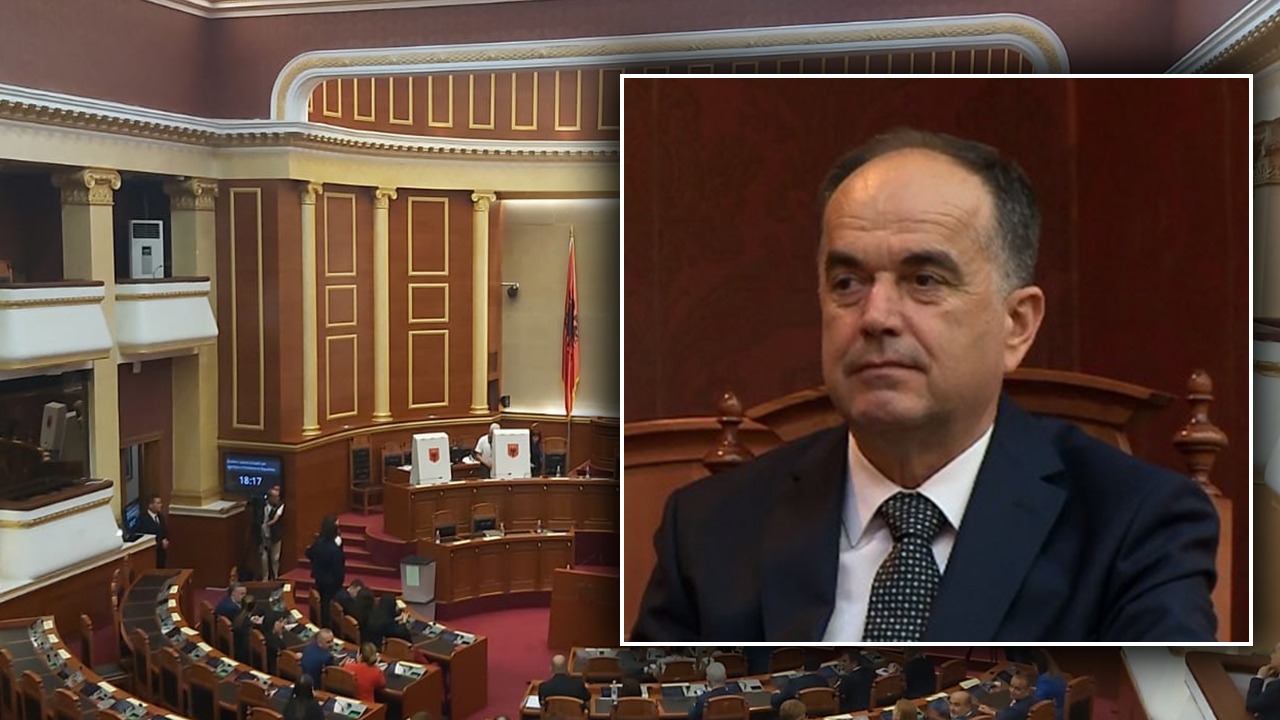TIRANA, June 4, 2022 – Albania’s parliament has voted Bajram Begaj as the country’s next president, with 78 MPs of 140 voting in favor, three against and one abstention.
The ruling Socialist Party, which proposed Begaj voted united as a block in favor in a secret ballot, joined by a small ally and one opposition vote.
The majority of the opposition, 58 MPs from the Democratic Party, refused to vote, protesting the non-consensual selection. Ten opposition MPs did attend the session, with the rest boycotting it. Those who attended said the election was unconstitutional as it led to having a president who until just hours before the vote had been an active major general who served as the country’s defense chief.
Begaj had resigned from the military on Friday, and incumbent President Ilir Meta gave him official discharge, fulfilling the constitutional obligation that no active military personnel can serve in certain political posts, the Socialists noted.
Albanian Prime Minister Edi Rama said Begaj was the sole candidate and had been selected by the Socialist Party following discussions on a lengthy list of candidates, which had ultimately been shortened to four names.
It is unclear how the list was compiled and critics have said the process was too opaque. But based on public statements made by the SP Parliamentary Group Chairman Taulant Balla and SP General Secretary Damian Gjiknuri, the goal was to have only one person proposed to parliament and then the Socialists would throw all their support to that candidate.
Opaque selection defies public consultation channels
As parliament had opened a call for public proposals through public consultation channels — there were candidates like 65-year-old lawyer and Constitutional Court Judge Perparim Kalo, who was supported by a group of important civil society and business associations as well as a public figure who has a great reputation in the international community in Albania.
There were also calls that a woman be selected for the first time ever as head of state, and there had been indications that two or three were considered, but ultimately they did not get the approval of the prime minister and small circle of party leadership that ultimately selected Begaj.
The constitutional requirements are basic: The president must be at least 40 years old, be an Albanian citizen and have resided in Albania in the last 10 years. The Socialists had promised they would go look for an apolitical person who will be able, thanks to the stature, work and life experience, to give the Office of the President the true status of a person who knows how to stand over the political parties, to represent the unity of the people and who will know how to perform that function by strictly respecting the norms of the constitution and following the best practices of heads of state around the world.
The fact the opposition raised objections on Begaj’s selection already brings some concern, but analysts say the performance of duties will indicate how Begaj will fill the presidential role.
That is something he also promised in a letter to the public shortly after being voted in.
Background of new president
The now retired general has had a low profile, and is not well known publicly, rising to become Albania’s top military officer and its highest ranked general in 2020. He was serving as chief of the general staff of the Albanian armed forces when he was picked, which made his vetting for the presidency easier and faster, according to officials.
Begaj is a medical doctor by training, and he rose as a manager from the military’s medical wing, serving in various positions in the armed forces for the past 30 years.
He went through medical and military schools in Albania, is an associate professor at the Medical University of Tirana and has had several trainings at key military management institutions in the United States and Germany, according to his official biography.
Born in 1967 in the central Albanian town of Rrogozhina, Begaj is married and has two adult sons.
Albania’s head of state has few powers
Following constitutional changes in 2008, Albanian presidents have been stripped of most key powers and their selection no longer requires a two thirds vote in parliament.
As per Albania’s current constitution, the president is largely an honorary figure meant to represent the unity of the people and ideally should not be an active political figure. But because the political parties in Albania have seen the presidential election as a zero sum game tied to their own power, most presidents selected in recent history have been political and pushed the boundaries of what is defined by the constitution, experts have noted.
Begaj is not an active political figure, but he is now part of a tradition of selecting military men for head of state in post-communist Albania. Both former presidents Alfred Moisiu and the late Bujar Nishani had a previous military career before taking office, with Moisiu also being a former general.










